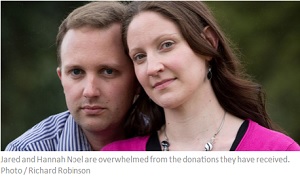Regenerative medicine is the latest medical technology for the restoration and repair of damaged lung tissue caused by lung disease. As the leaders in lung treatment, Lung Institute’s physicians have harnessed this advancement in modern medicine to bring patients suffering with conditions like chronic obstructive pulmonary disease (COPD), emphysema, chronic bronchitis, and pulmonary fibrosis an innovative treatment choice that betters their quality of life and helps them to breathe easier.
Often, many of these patients have been told that lung transplantation is their only option, and as a result many are turning to advanced treatments such as pulmonary stem cell therapies to enhance lung function and regenerate healthy lung tissue.
Stem Cell Therapy vs. Lung Transplant for Lung Disease
Chronic obstructive pulmonary disease (COPD) is the third leading cause of morbidity and mortality in the United States, and a top five cause of death worldwide. Although there are many suppressive treatments available to COPD sufferers, the progressive nature of this disease almost unavoidably leads to a diminished quality of life.
Often, once most types of conventional treatment methods are exhausted, COPD sufferers are told that their treatment path is going to result in a lung transplant. Before undergoing this invasive, and sometimes risky, surgery it is important to know the outcomes of a lung transplant.
The excerpt below, from the National Institutes of Health (NIH), outlines the life expectancy of an individual post lung transplant surgery.
“In recent years, short-term survival after lung transplant has improved. Recent data on single-lung transplants show that:
- About 78 percent of patients survive the first year
- About 63 percent of patients survive 3 years
- About 51 percent of patients survive 5 years
Survival rates for double-lung transplants are slightly better. Recent data shows that the median survival for single-lung recipients is 4.6 years. The median survival for double-lung recipients is 6.6 years.
As you can see, the median number of years added to a person’s life post lung transplant ranges from 4.6 years to 6.6 years depending on the type of surgery received. This procedure can improve quality of life, but there is also risk of complications including infection, rejection of the new lung(s), and in some cases, an increased chance of developing diabetes, kidney damage, and osteoporosis.
Regenerative therapies are emerging as an alternative and preemptive treatment, to the invasive option of lung transplantation.
How do stem cells restore damaged lung tissue?
Lung Institute utilizes autologous stem cells, meaning those derived from the patient’s own blood or fat tissue, for treatment. These somatic, or adult stem cells have the unique ability to self-renew and replicate, and are capable of forming any type of tissue found in the human body, including lung tissue.
What is the stem cell treatment process like?
This minimally invasive, outpatient procedure is performed over the course of three days within the Lung Institute’s Office located in downtown Tampa, FL. For pulmonary conditions, the stem cells are stimulated to increase in number by oral and injectable agents. Next, the stem cells are derived from the patient’s own blood or bone marrow and are given back to the patient intravenously.
In conclusion: Stem Cell Therapy vs. Lung Transplant for Lung Disease
Both stem cell therapies and lung transplantation have been proven, in many cases, to improve sufferer’s quality of life. However, lung transplantation is an invasive, inpatient surgery that can have risky complications and a longer recovery time.
Stem cell therapies do not replace the need for a lung transplant, but can slow the progression of lung disease, and therefore prolong the need for a transplant. Stem cells and other forms of regenerative therapies are also proven to significantly improve sufferer’s quality of life.
A recent Lung Institute patient, Peter Pike, was diagnosed with COPD and underwent stem cell therapies with at our clinic in Tampa a little over 5 months ago. He is now able to perform everyday functions without feeling out of breath; even his wife says his overall disposition has improved. To learn more about how Pike’s life has improved, watch his testimonial video by clicking here.
Reference: http://www.digitaljournal.com/pr/1560123







